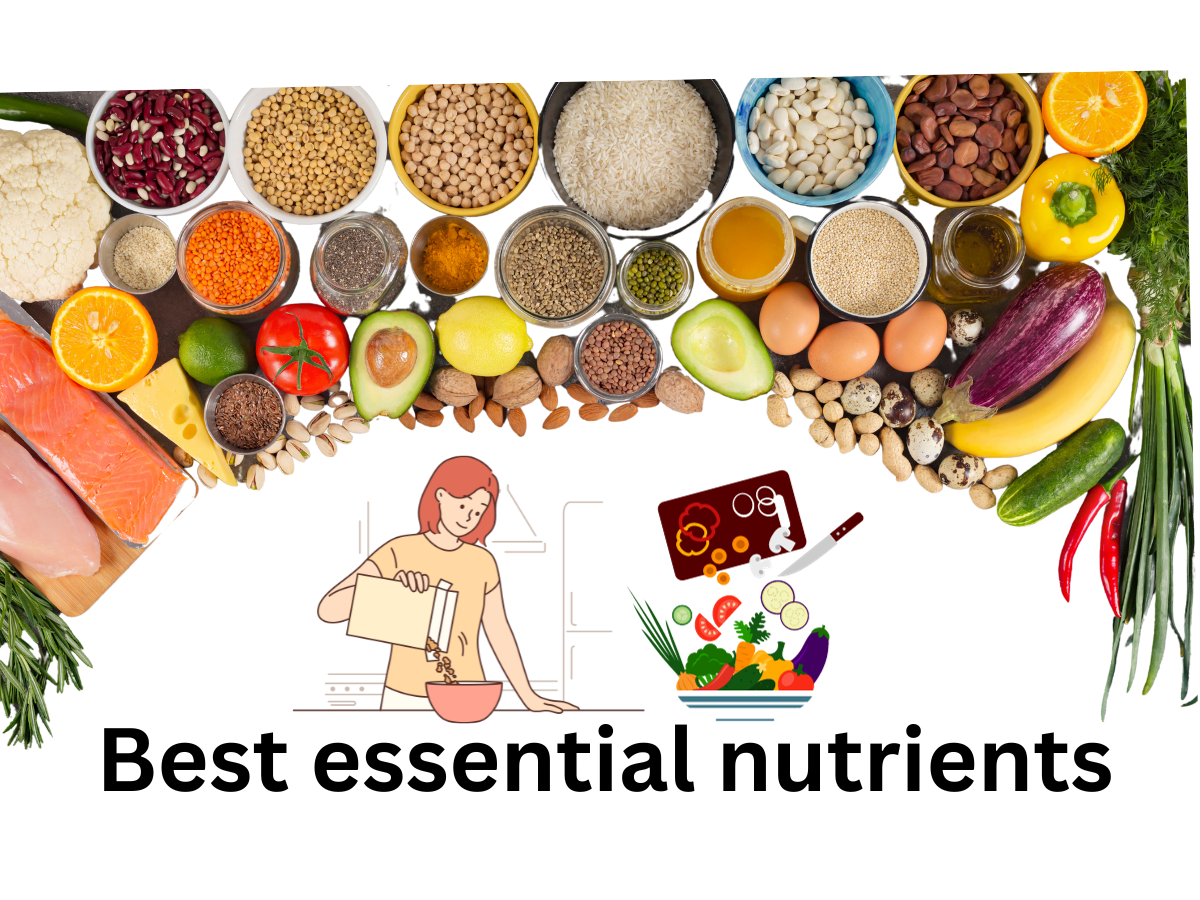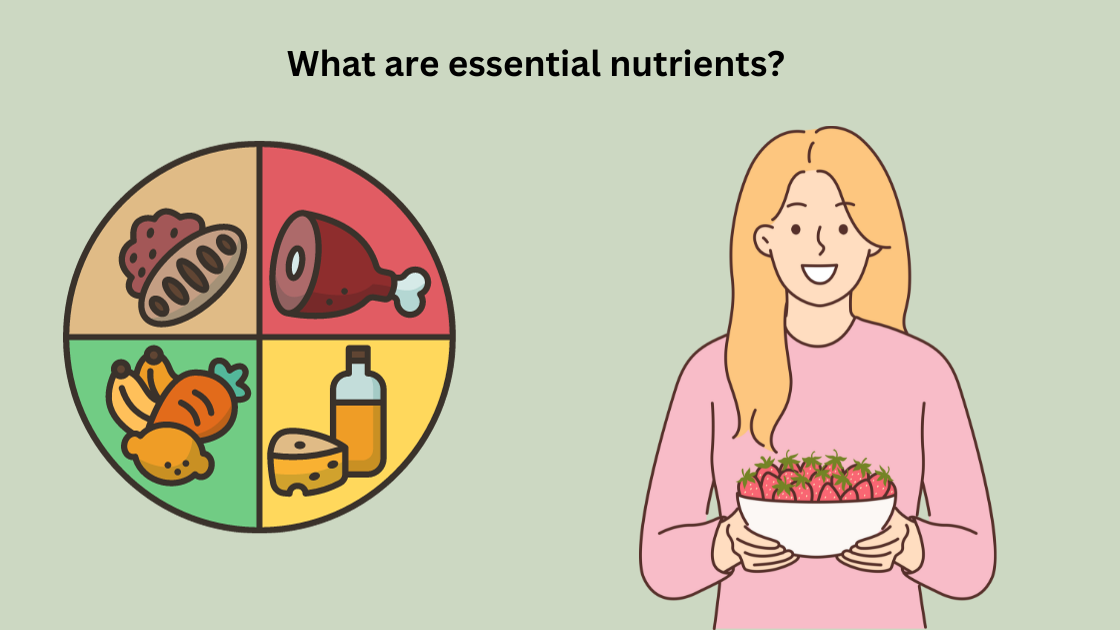The Importance of Essential Nutrients for Optimal Health
Introduction: In today’s fast-paced world, maintaining a healthy lifestyle is essential. One crucial aspect of overall well-being is ensuring our bodies receive the right balance of essential nutrients. These nutrients play a vital role in supporting various bodily functions and promoting optimal health. This article aims to delve deeper into the subject of essential nutrients, their importance, and how they contribute to our well-being. Essential nutrients play a crucial role in maintaining overall health and well-being. These nutrients are vital for the proper functioning of our body and are obtained solely through the food we consume. In this article, we will explore the best essential nutrients that our body needs to thrive. From macronutrients like proteins, carbohydrates, and fats to micronutrients like vitamins and minerals, this article will delve into the importance of each nutrient and how they contribute to our well-being
I. Understanding Essential Nutrients:
1. Defining Essential Nutrients: Essential nutrients are substances that our bodies require but cannot produce in sufficient amounts independently. These nutrients must be obtained from external sources such as food or supplements.
- The Different Types of Essential Nutrients:
a) Macronutrients:- Carbohydrates, proteins, and fats.
- Provide energy, support growth, and maintain bodily functions.
- b) Micronutrients:
- Vitamins and minerals.
- Required in smaller quantities but still vital for overall health.
- c) Phytonutrients and Antioxidants:
Plant-based compounds that offer various health benefits.
Carbohydrates:
Carbohydrates are our body’s primary source of energy. They are divided into simple and complex carbohydrates. Simple carbohydrates, found in fruits, sugar, and honey, provide quick energy. Complex carbohydrates, found in whole grains, legumes, and vegetables, provide sustained energy and necessary fiber for digestion
Proteins:
Proteins are the building blocks of life and are essential for growth and repair of tissues. They provide energy, support the immune system, and help in the synthesis of hormones and enzymes. Good sources of protein include lean meats, poultry, fish, dairy products, legumes, and nuts.
II. The Role of Essential Nutrients in Our Bodies:
1. Macronutrients: a) Carbohydrates: Primary energy source. Essential for brain function, muscle activity, and overall vitality.
b) Proteins: – Building blocks for tissues, enzymes, and hormones. – Aid in muscle growth, repair, and maintaining a healthy immune system.
c) Fats: – Provide energy, insulation, and cushioning for vital organs. – Facilitate the absorption of fat-soluble vitamins. Contrary to popular belief, fats are an essential nutrient for our body. They provide energy, help absorb certain vitamins, protect organs, and regulate body temperature. Healthy sources of fats include avocados, nuts, olive oil, and fatty fish.
Micronutrients:
a) Vitamins:
- Essential for various bodily functions.
- Examples: Vitamin A for vision, Vitamin C for collagen production.
b) Minerals:
Support bone health, nerve function, and red blood cell production.
Examples: Calcium for strong bones, Iron for hemoglobin synthesis.
Vitamins:
Vitamins are essential for various bodily functions, including energy production, immune system support, and the prevention of chronic diseases. There are 13 essential vitamins, categorized into fat-soluble (A, D, E, and K) and water-soluble (B-complex and C) vitamins. Each vitamin plays a unique role, and incorporating a well-balanced diet with fruits, vegetables, whole grains, and lean proteins ensure adequate vitamin intake.
Minerals:
Minerals play a vital role in maintaining a healthy body. They are involved in bone development, fluid balance, nerve conduction, and muscle contraction. Calcium, magnesium, iron, zinc, and potassium are some essential minerals. Consuming foods like dairy products, whole grains, nuts, seeds, and leafy greens can help meet our mineral requirements.
III. The Importance of Balancing Essential Nutrients:
1. Optimal Health and Well-Being: Proper intake of essential nutrients is crucial for overall health. Imbalances can lead to deficiencies or excesses, resulting in health issues.
Disease Prevention:
- Adequate intake of essential nutrients can help prevent chronic diseases.
- Examples: Vitamin D for bone health, antioxidants for reducing oxidative stress.
Energy and Vitality:
- Well-balanced nutrients provide sustainable energy levels throughout the day.
Deficiencies can lead to fatigue, weakness, and decreased productivity.
IV. Sources of Essential Nutrients:
1. Fruits and Vegetables: – Rich in vitamins, minerals, and phytonutrients.
1. Lean Proteins:
o Sources include poultry, fish, legumes, and nuts.
2. Whole Grains:
o Provide fiber, vitamins, and minerals.
o Examples: Quinoa, brown rice, whole wheat bread.
3. Healthy Fats:
o Avocado, olive oil, nuts, and seeds.
V. Supplementation:
When to Consider Supplements: Supplements can be beneficial for individuals with specific dietary restrictions or deficiencies.
Consultation with a healthcare professional is essential before starting any supplementation regimen.
Choosing Quality Supplements:
o Look for reputable brands that undergo third-party testing.
o Ensure supplements contain appropriate dosages and are free from unnecessary additives.
Water:
Water is often overlooked but is undoubtedly an essential nutrient. It is involved in almost every bodily function, including digestion, circulation, temperature regulation, and lubrication. Staying hydrated is crucial for overall health, and drinking an adequate amount of water daily is essential
Conclusion: Ensuring an adequate intake of essential nutrients is vital for optimal health and well-being. Macronutrients, micronutrients, and phytonutrients all play crucial roles in supporting our bodies’ various functions.A balanced diet rich in fruits, vegetables, lean proteins, whole grains, and healthy fats can provide most of these nutrients.
However, supplementation should be considered when necessary, with expert guidance, By prioritizing the consumption of essential nutrients, we can unlock our bodies’ full potential and achieve a healthier and more vibrant life. Essential nutrients are the cornerstone of a healthy lifestyle.
Consuming a well-balanced diet rich in proteins, carbohydrates, fats, vitamins, minerals, and water is vital for our body to function optimally.
Remember, these nutrients work synergistically, and it’s important to have a varied and diverse diet to ensure we meet all our body’s requirements. By focusing on incorporating nutrient-dense foods and maintaining a healthy lifestyle. We can promote our overall well-being and lead a happy and fulfilling life.






